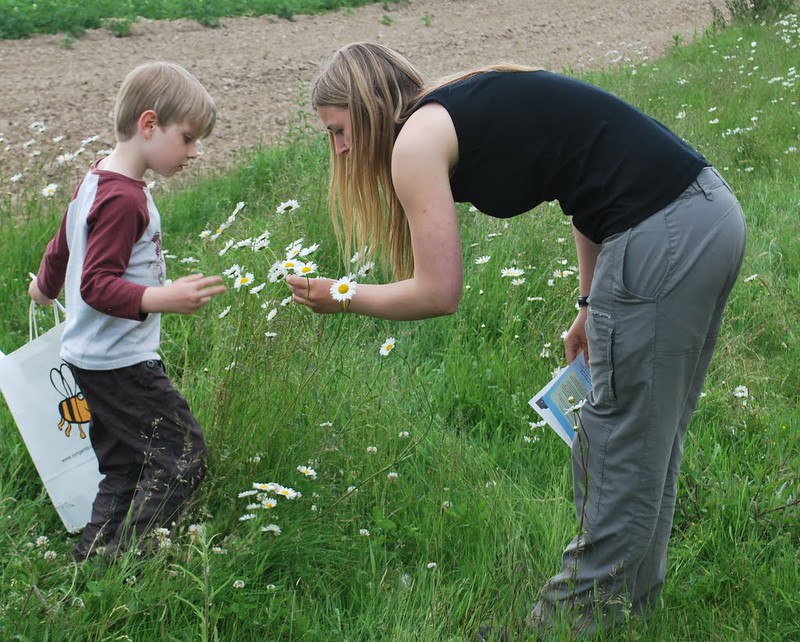Nature-based solutions, climate change and the current crisis
Nature-based solutions, climate change and the current crisis
The Nature-based Solutions (NbS) Digital Dialogues hosted by the University of Oxford convened virtually on 7-9th July 2020. Sam Bickersteth reports on key economics and governance issues highlighted in the debates.
NbS approaches to climate change have received renewed emphasis in recent months, through a variety of reports, events and processes – of which, the Nature-based Solutions (NbS) Digital Dialogues hosted by the University of Oxford was one. For example, NbS are one of the focus areas for the UK Presidency of COP26. The Dasgupta Review on the Economics of Biodiversity, which has issued its interim report, highlights that biodiversity loss is intimately related to climate change and cost-effective interventions are available to tackle both biodiversity and climate challenges.
Planetary health is in the public eye
Links between infectious disease outbreaks, biodiversity and environmental change are especially relevant in the current COVID19 crisis. The health of our planet plays a role in the health of people and we know that land-use change is a driver of recently-emerging infectious diseases: deforestation and associated human activity increases the risk of “spill-over infections” from wildlife to people. A new UNEP study of emerging diseases in Brazil revealed relationships between infectious disease outbreaks and (1) extreme climate events (El Niño, La Niña, heatwaves, droughts, floods, increased temperature, higher rainfall), the frequency of which might be affected by climate change; and (2) environmental changes (habitat fragmentation, deforestation, urbanisation and wild meat consumption). NbS are therefore a critical response to the climate, environmental and planetary health challenges that we face.
Are governance systems up to the challenge?
The NbS Digital Dialogues addressed the inter-related finance and governance issues that underpin the viability of nature-based solutions. These include public and private financial support, questions of valuation and measurement, timeframes and equity.
For many of those involved, there is an underlying assumption that we can develop market-based approaches to nature (or nature-based solutions to climate change and other environmental issues) and envision a nature positive economy. Working against this, there is a realisation that we are living at a time of divisive culture wars, polarisation and populist governments, which can militate against this shift and in some instances aggravate further loss of habitats, species and natural wealth.
 Need for a clear narrative and measurement of nature’s benefits
Need for a clear narrative and measurement of nature’s benefits
The conference called for a narrative to frame the urgency of action on nature and for NbS. From this, we need to identify the many possible pathways to NbS business models; in particular, dealing with not only flows of natural capital but also stocks. For any company, their assets matter as much as their profit and loss account and cashflow. Likewise, a business, country or community should assess what is happening to their natural capital assets. The Natural Capital Coalition uses the language of business to bring this to the attention of business leaders and reported that it always gets a positive response.
Working on the basis that we “manage what we measure” the panel agreed that there are limitations with our systems of measuring prosperity and wellbeing - not least GDP. But the panel argued we should use and improve what metrics and indicators we have rather than invent new approaches. We should, for instance, ensure that ecological and social indicators are added alongside financial measures to capture the costs and benefits of longer term investments such as land restoration. If we get this right, we can make NbS and related natural capital into an business asset class just as water, renewable energy and carbon have become.
Regenerative agriculture, sustainable intensification, landscape restoration can become nature-based businesses rather than the destructive and unhealthy stocks of many food and agricultural corporations. A note of caution was expressed from a member of the UK’s Natural Capital Committee who said that natural capital valuation appears to greatly undervalue natural capital stocks, their intrinsic and longer term value to society. The Dasgupta Review on the Economics of Biodiversity will make a major contribution to addressing this undervaluation.
Environmentally-focused investors and coalitions of the willing
Alongside this, investors can establish demands on how companies and countries behave. For example, it was suggested that there are signs that the destructive deforestation policies promoted by the current Brazilian government may be slowing due to investors threatening to withdraw from the country.
Furthermore, none of this will work if it fails to be inclusive, address poverty reduction, equity and inequality. The governance panel set out the need for multi-layered and multi-institutional approaches depending on context.
Examples included dialogues in Peru and or networks of actors in Bangladesh working to influence the Five Year National Planning process. At international level global unanimity that led to both the SDGs and Paris Climate Agreement in 2015 is presently unlikely Instead we expect more coalitions of the willing to operate within and around multilateral processes such as the 35 countries working within the High Ambition Coalition of the UNFCCC or the Global Coalition for Biodiversity launched in March 2020 by the European Commission.
 A pressing agenda for the year 2020
A pressing agenda for the year 2020
The expert panel was challenged to suggest the issues that they believed must be urgently addressed in 2020.
First, the loss of nature must be regarded as an investor business risk (extending Climate Related Risk Disclosure to Nature related risk disclosure).
Second, reporting that incorporates the value of natural capital into national and company accounts must become the norm.
Panellists considered action on the food system as a priority – shifting away from destructive agricultural subsidies and improving diets would have a huge impact. The positive example of new legislation in the UK (Environmental Land Management scheme) could potentially see agricultural subsidies move even further from production-based incentives to nature-friendly approaches where farmers are rewarded in terms of habitat or water conservation.
It was these actions and a range of locally relevant solutions that could turn the tide in the current culture wars, which are seeing our nature undermined.
Images: upper right, tree planting by Trees for the Future; above, Indian farmer by ILO Asia Pacfic; and investigation of wildflower margins on farms by CEH.
